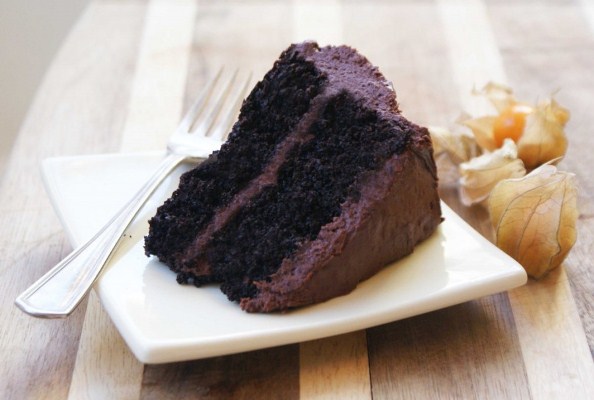What is ‘clean’ food? Not very long ago, you would have been forgiven for thinking that ‘clean’ meant food that didn’t have hair, dirt, or foreign objects in it. Food run under the tap for five minutes. Food that hadn’t fallen on the floor. Food not partially eaten by rats.
These days, ‘clean’ food means something else entirely, and if you’ve ever spent any time around fitness trainers, gym rats or even idly flicked through a lifestyle magazine, you are probably familiar with it. Depending on who you are, ‘clean’ means food that is free of dairy, gluten, sugar or saturated fat; food that has been prepared without oil; diet free of animal products; paleo, vegan, raw. Generally, its proponents advocate less pre-packaged food and more fresh fruits and vegetables. This is less for their essential vitamins and minerals than their ‘detoxifying’ superpowers and ability to cure everything from autism to Alzheimers.
A quick Google search is enough to get the idea. Think: pictures of young women performing natarajasana in fields. Pots of tea and colourful plates of salad concocted from ingredients that cost five times as much as anything else on the shelf – here’s looking at you, quinoa. Green smoothies served in mason jars. Advice about how supplements can help you recover from adrenal fatigue (not a real medical condition) or how certain juices, brews, and expensive gadgetry will help your body ‘detox’ (your kidneys are probably doing a better job already). Synergy! Activation! Holistic everything! Forgive me if I sound bitchy, but these buzzwords don’t buzz anymore so much as clang and jar in a terrifying ‘wellness’ symphony.
After a while, this marketing copy (because that’s what it is) throws up more questions than answers. Why is broccoli ‘cleaner’ than wheat? Why are the highly-processed vitamin supplements and refined protein in powder form okay but refined carbohydrate, ie. raw sugar, is not? Why does Pete Evans hate beans (and children)? The truth is, ‘clean’ eating can mean whatever you want it to mean, as long as it is established around a set of arbitrary rules, only very remotely related to actual dietary health, based on the idea that some food is more pure than other food. That Caramello Easter egg you just ate? Bad. A cupcake made with coconut oil, coconut flour, almonds, stevia, protein powder and melted chocolate? Wonderful! And buy our cookbook to get the recipe!
And then there are the gurus. The cult of foodie personality can be big money, and more and more people want a slice of that gluten-free pie. Nutritionists, chefs, fitness trainers, yoga teachers – everyone can style themselves as a lifestyle guru. In my own little circle of acquaintances I have watched a disproportionate number of friends struggle with direction – move back in with their parents at the age of 30, or skip across fifteen different jobs in the space of a few months, sinking into wells of depression – before discovering vegetables and a gym membership and suddenly they are open for business. Food coaching. Personal training services. Wellness counselling. I am sure they are much happier having objectives and goals than they were floating aimlessly through their days. God knows I can relate to that – but I confess, I am cynical. I am cynical not so much about their genuine enjoyment of their new life, but at what’s driving them down this path.
Because ‘I want to be the best person I can be’ no longer means generosity, or standing up for the rights of others, or learning about history and philosophy and art and science. It means turning one’s body into a perfectly oiled and glistening marketable machine by consuming all the right products from all the right companies. ‘Healthy’ no longer means a body that functions at its optimum but living by a particular set of arbitrary rules invented by someone with a product to sell and no medical authority. Anyone can call themselves a nutritionist with the thinnest of qualifications, but an Accredited Practising Dietician is the only national credential recognised by the Australian Government, Medicare, the Department of Veterans Affairs and most private health insurance providers. The problem is that evidence-based dietary advice is not very sexy. It will not promise a cure for cancer or autism or clinical depression, but it will help you fuel yourself according to your needs. Unfortunately, the market is so saturated with misinformation and outright lies that it’s hard to separate the good advice from the bad, and – as demonstrated by the recent furore around Belle Gibson and Pete Evans – popularity is absolutely no guarantee that someone is not a quack.
Other more refreshingly sane commentators have written at length about how there is no moral value to food: at its most basic, it is fuel. Furthermore, that pile of leafy greens and tiny portion of lean meat is no doubt full of nutrients, but will only go a fraction of the way towards getting you through the day. ‘The body does not run on nutrients,’ writes fitness trainer and blogger Amber Rogers from GoKaleo, ‘it runs on calories.’
But in a culture where we are increasingly alienated from the most fundamental things – our daily labour, the political system, each other, but most particularly our own bodies – it is no wonder that the diet/exercise nexus has become a site of revelation (and, conversely, terror) for so many people. It represents the primary site of control: sometimes the only thing that we feel like we can actually change in a world full of chaos. But it’s a false comfort, because there’s a market for that too, and the price just keeps on rising.






